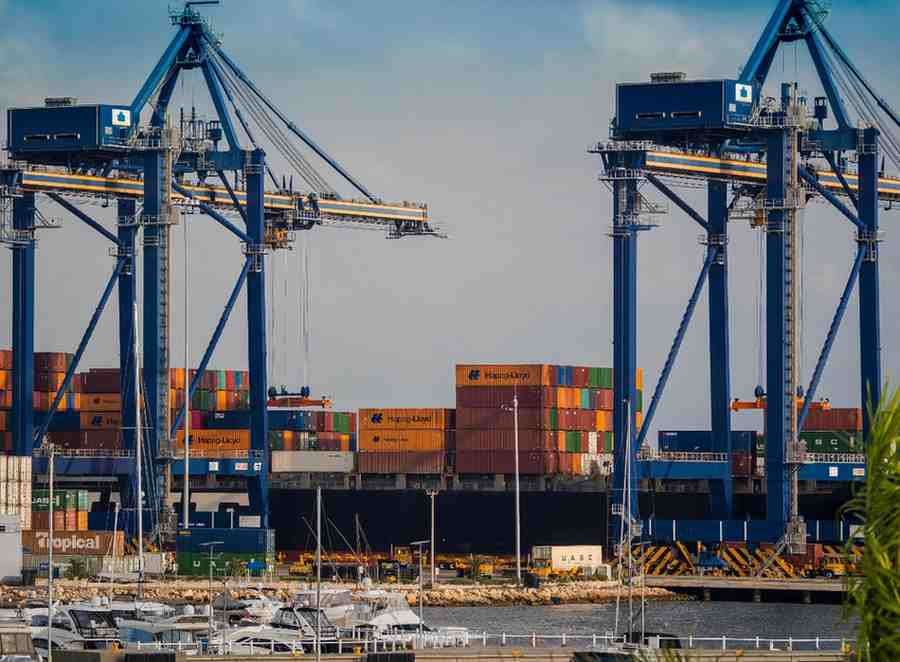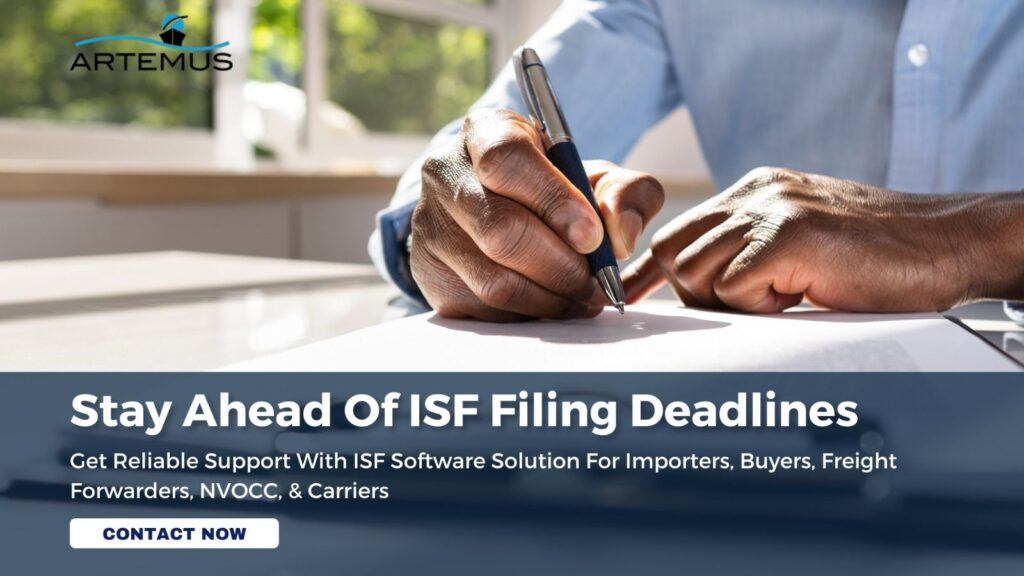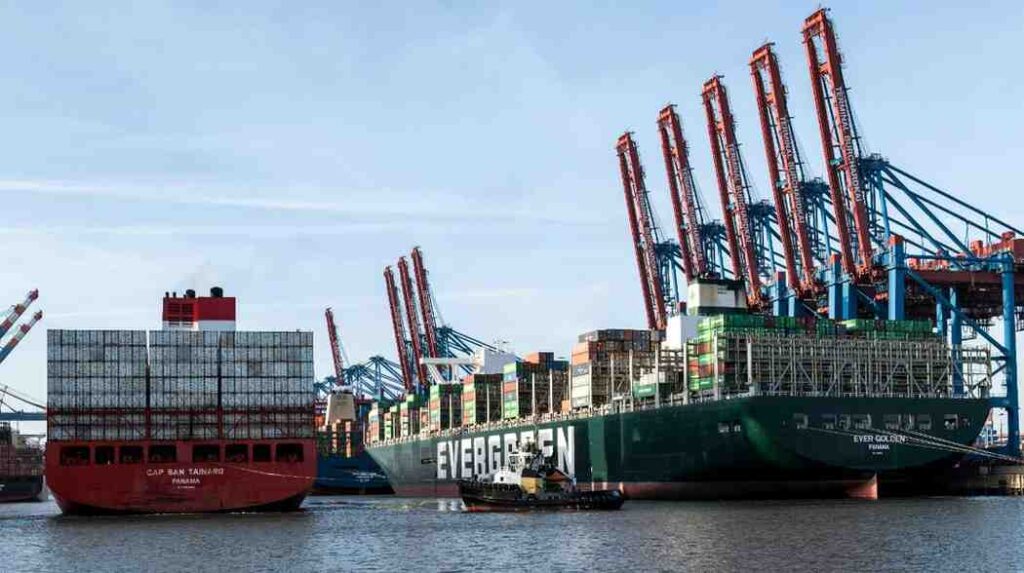
What Is Inbound Logistics & Outbound Logistics? A 2025 Guide
In the dynamic world of supply chain management, understanding the nuances of inbound and outbound logistics is crucial for operational

Navigating the complexities of global trade often requires specialized expertise, particularly in transporting goods across oceans. Freight forwarders, experts in this domain, arrange transportation by ocean shipping, ensuring that your cargo reaches its destination efficiently and safely.
These professionals handle the intricate logistics of ocean freight, including documentation, customs clearance, and cargo insurance, providing a seamless experience for businesses engaged in international trade.
Artemus Transportation Solutions offers state-of-the-art ISF (Importer Security Filing) and AMS (Automated Manifest System) software solutions to further streamline the process and ensure compliance with stringent regulations.
Table Of Contents
Freight forwarders are pivotal players in the logistics and supply chain industry, but their role extends far beyond arranging transportation exclusively by ocean shipping.
They are, in essence, intermediaries who coordinate the movement of goods from manufacturers to consumers across various modes of transportation, including air, land (truck and rail), and sea.
Here’s a comprehensive look at the multifaceted role of freight forwarders and how they operate across different modes of transport:
1. Ocean Shipping:
Ocean shipping is one of the primary services offered by freight forwarders, particularly for large volumes of goods that are not time-sensitive.
They manage the booking of cargo space on ships, handle port and customs documentation, arrange for container packing, and ensure compliance with international maritime regulations. Ocean shipping is cost-effective for long distances and bulk goods.
2. Air Freight:
For time-sensitive or high-value goods, freight forwarders arrange air transportation. This mode is faster but more expensive compared to ocean shipping. Freight forwarders coordinate with airlines, manage air waybills, and handle the logistical aspects of air cargo, such as storage, insurance, and customs clearance.
3. Land Transportation:
4. Intermodal & Multimodal Transportation:
Freight forwarders often employ intermodal (using multiple modes of transportation without handling the cargo itself when changing modes) and multimodal (a single contract but various modes of transport) solutions. This approach optimizes costs and transit times, providing flexibility and efficiency in global supply chains.
In addition to arranging transportation, freight forwarders provide a range of value-added services, including:
Compliance with international trade regulations is a critical aspect of freight forwarding. Freight forwarders ensure that all shipments adhere to the necessary regulatory requirements, which can be complex and vary by country. To aid in this, Artemus Transportation Solutions offers advanced software solutions, such as:
Related: How Much Does It Cost To Become A Freight Broker In 2024
Several factors influence the ocean shipping process, impacting everything from shipping costs to delivery times and overall logistics efficiency. Here’s an overview:
Related: Freight Broker License Costs: The Price Of Entry In 2024
Ocean shipping, vital for global trade, faces various challenges that hinder efficiency. Outlined below are the primary challenges along with their respective solutions:
Related: What Is Freight Forwarder Vs Broker: 6 Key Differences

Artemus Transportation Solutions provides state-of-the-art software designed to assist freight forwarders with compliance requirements for the United States. Their specialized solutions for ISF (Importer Security Filing) and AMS (Automated Manifest System) filings ensure that all necessary data is accurately and timely submitted to U.S. Customs and Border Protection.
This compliance is crucial for avoiding penalties and ensuring smooth and efficient entry of goods into the United States.
Related: How To Start A Freight Forwarding Business? 10 Easy Steps
Sea freight forwarding involves the organization and coordination of shipping goods via ocean vessels from one port to another.
Ocean shipping works by transporting goods via large vessels across oceans and seas, following established shipping routes between ports worldwide.
Businesses and individuals involved in importing or exporting goods globally often require the services of a freight forwarder to manage logistics and transportation.

In conclusion, while freight forwarders are essential in arranging ocean shipping, their role extends far beyond this. Focusing solely on ocean transport limits their potential. Freight forwarders excel in multimodal logistics, combining ocean, air, rail, and road transport to optimize routes, reduce costs, and ensure timely deliveries.

In the dynamic world of supply chain management, understanding the nuances of inbound and outbound logistics is crucial for operational

In today’s interconnected world, businesses rely heavily on global trade to expand their markets, access new resources, and drive growth.

Importing goods for resale in the USA presents a lucrative business opportunity, but navigating the complexities of U.S. customs regulations,
Get In Touch
Artemus’ Software Solutions for ISF, AMS, Japan AFR, eManifest Canada, & Panama B2B filings.